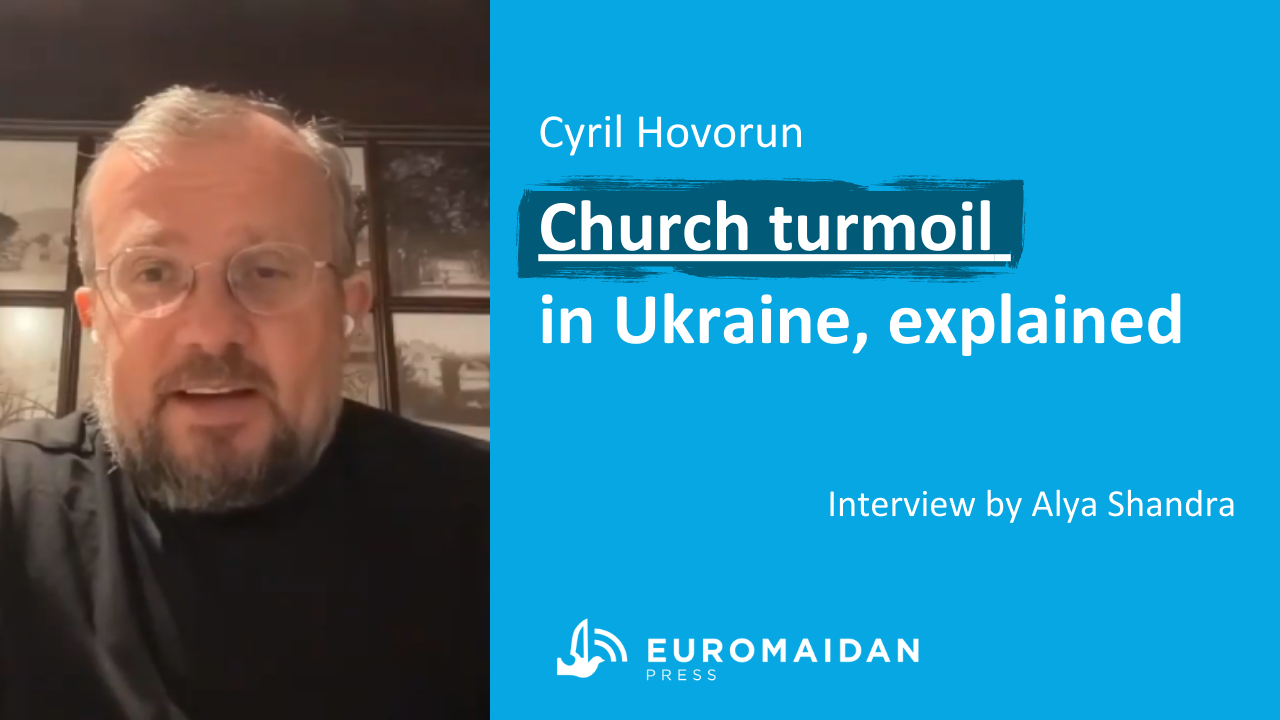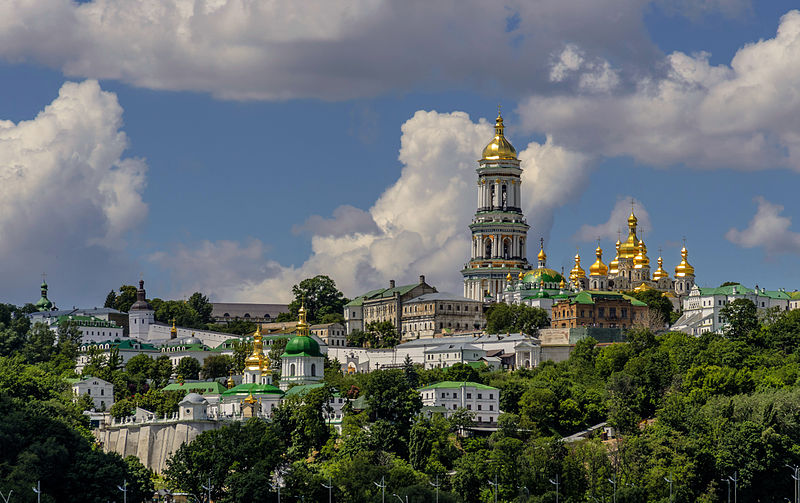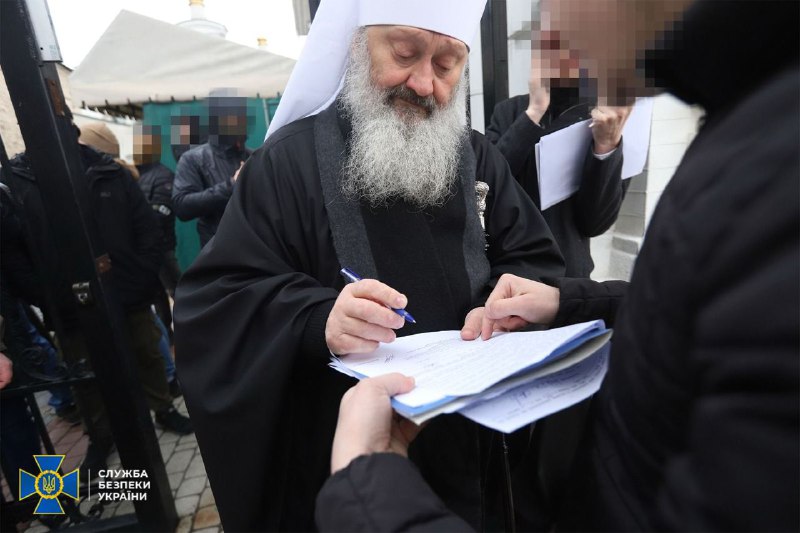However, in May 2022, hopes were high that the UOC MP would break ties with Moscow, shaken by the Russian invasion of Ukraine, and even move towards unity with the independent Orthodox Church of Ukraine, which emerged at the hands of Ecumenical Patriarch Bartholomew in 2019. What went wrong? Is the UOC MP a hotbed of “Russian world” ideology that Moscow Patriarch Kirill has used to bless Russia’s invasion of Ukraine? Or is the Ukrainian state persecuting a perfectly patriotic church, as the UOC MP claims? Cyril Hovorun, PhD, Senior Lecturer at Stockholm School of Theology, explains.
Hello father Cyril. Please get us up to speed on what’s happening in the Kyiv-Pechersk Lavra. Who has left, who may still leave, and do they have where to go?
There are many aspects to the situation in the Lavra, with three major entities on the monastery’s territory. First, there is the monastery itself, which had over 200 monks constituting the monastic community of the Lavra before the events. Second, there are over 200 students of the Kyiv Theological Seminary and Academy, the main theological educational institution of the UOC MP, including the administrative apparatus, the students themselves, and the library. All of them had to be relocated somehow. Third, there is the administrative apparatus of the UOC MP, also hosted on the Lavra’s territory.
As far as I know, mostly, all three units have left. And it appears that the primate of the UOC MP, Metropolitan Onufriy, was the first to leave, unlike the good captains who leave their vessels last. This is something I can’t explain. Regarding the monks, some have left the monastery already, some have stayed, and some have decided to stay whatever it takes.
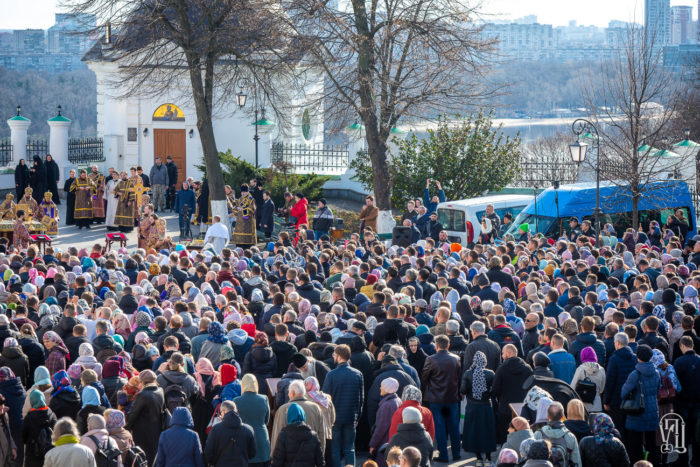
And as you know, formally speaking, there are two communities now on the Lavra territory. One is the community that existed of the Ukrainian Orthodox Church and then a newly established community [of the independent Orthodox Church of Ukraine], which thus far consists of only one monk [who declared he will leave the UOC MP and join the OCU]. Possibly, some other monks can switch to that community, but we need to wait and see; nobody knows how many will switch.
So everything is vague; everything is in motion. It’s unclear what will happen due to the procedures initiated by the Ukrainian state. There seems to be a lot of turmoil, unsettling, and unrest, both within Lavra and probably even more so outside the Lavra. Many people who identify as UOC MP members living in different areas of Ukraine have been stirred and disturbed by the events. They have commissioned themselves to help somehow, either actively or passively, either being present physically in Kyiv or from a distance. It’s almost like an ideal storm, I would say, and it’s evolving. And we don’t know what will be its result.
The government formally justified its decision to terminate the lease by citing violations committed by the Ukrainian Orthodox Church of Moscow while residing in the premises, such as constructing new buildings inconsistent with the historical style. However, these formal justifications seem to be merely a pretext, and the real issue lies elsewhere. How do you view this decision to terminate the lease? What are the real reasons for the Ukrainian state to ask the UOC MP to leave — what’s the real problem?
I agree that the violation of the Lavra’s status as a UNESCO site by communities residing on its territory is not the reason but a pretext. The main reason likely stems from the UOC MP’s leadership being unable to address the issue of the Church’s active or passive collaboration with the Russian aggressor in various ways. We have seen pictures and footage of the Church’s bishops participating in Kremlin-organized annexation ceremonies and events, legalizing the occupation [on Russian-occupied territories of Ukraine]. The Church’s leadership has failed to address this issue effectively, which has led to the Ukrainian state’s reaction.
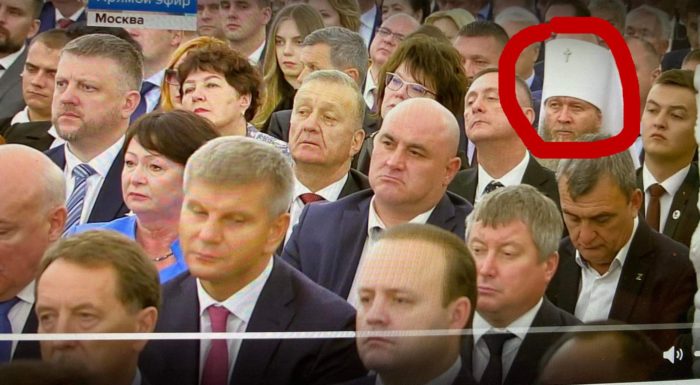
Previously, the Ukrainian state maintained some neutrality towards religious issues. However, a more proactive policy towards the UOC MP was needed. The chosen strategy and tactics may not have been optimal; the state opted for a shortcut by eliminating the entire structure rather than addressing individual cases. In a legal state, individual perpetrators should be prosecuted and punished, not entire structures or groups.
The decision to evict all church structures from the Lavra seemed to be the easiest way—a shortcut to solving the problem. However, it may be the most challenging regarding outcomes and results for the common good of Ukrainian society and Ukraine’s international standing. Criticism is growing internationally, coming not only from religious leaders like Pope Francis but also from secular international bodies and institutions. This serves as a warning signal for the Ukrainian state and society, as they need to maintain unanimous international support. Unwise steps and choosing shortcuts instead of lawful ways may prove too costly for Ukraine.
I’m going to play the devil’s advocate here and address the topic of collaboration. So, we have the UOC MP in Russian-occupied territories that started cooperating and going along with the new Russian puppet leaders imposed in those regions. Is this any different from what the church historically did in other conditions of occupation, such as under Nazi Germany? The church put up with all these new occupiers and didn’t lead any rebellions against them. So, the Ukrainian Orthodox Church and the Moscow Patriarchate in the occupied regions are doing what the Church is used to doing under occupation. Do I understand it correctly?
You’re right. It has to do with the long tradition, centuries-long tradition of Eastern Christianity collaborating with the state—the famous or infamous symphony between the Church and the State that goes back to the 4th century, the era of Constantine the Great, when the church was legalized by the state, embraced by the state, and eventually became a mechanism of the state. Even after the state disestablished the churches, as is the case in Ukraine, where the church is separated from the state according to the constitution, which signifies the formal status of disestablishment of the church in Ukraine, the mentality within the church remains the same: cooperate with whoever is in charge, with the present ruler.
I’m sure this was one of the driving forces for those collaborators in the occupied territories, in addition to a sincere sympathy with the Russian cause, which is also a feature for many, both on the occupied and unoccupied free territories of Ukraine. As I said, there are such cases, and we know some of them are falling already, like the notorious Metropolitan Pavlo, who made appalling statements and compared [pro-Russian president Victor Yanukovych, who fled to Moscow in 2014] with the pious Joseph, who carried the body of Christ, and with the disciples of Christ. I am sure there are other cases we do not know about. The Ukrainian society and the Ukrainian state tried to solve the problem of collaboration within the UOC MP by annihilating the structure, but I don’t think that will solve the problem because it won’t annihilate the people, the actual collaborators.
Imagine the Ukrainian Orthodox Church is abolished—which is legally impossible because it doesn’t have a legal personality—but the people would still be there. They might not be able to attend this church, but they would still do their work, like correcting Russian artillery or giving up sensitive information to the occupants. Abolishing the church will not solve the problem of collaboration, and it will create additional problems for Ukraine’s standing on the international scene.
What will solve the problem of collaboration, however, is trying every individual suspect on the basis of evidence, with legal proceedings according to Ukrainian law, by the Ukrainian court, and in the name of the Ukrainian people. Those trials need to be fair, objective, transparent, and carried out with proper publicity. Serving justice to proven perpetrators will solve the problem of collaborators, not abolishing the structure. This is the reverse side of the same mistake in previous years of Ukrainian history, such as after 2014 when the Ukrainian Orthodox Church was complicit in collaborating with Yanukovych’s regime. The structure protected individuals then, like Metropolitan Pavlo and those who openly collaborated with the regime of Yanukovych and supported the shootings [of protesters during the Euromaidan revolution in 2014], while now it brings down everyone who belongs to it. Just by belonging to the Ukrainian Orthodox Church, which is called the Moscow Patriarchate but legally is named just the Ukrainian Orthodox Church, everyone is suspected of collaborating. This approach is wrong and cannot happen in a democratic state. People should be treated for their actions, not for where they belong to.
The UOC MP is claiming it is being persecuted by the state. Do you agree with this assessment?
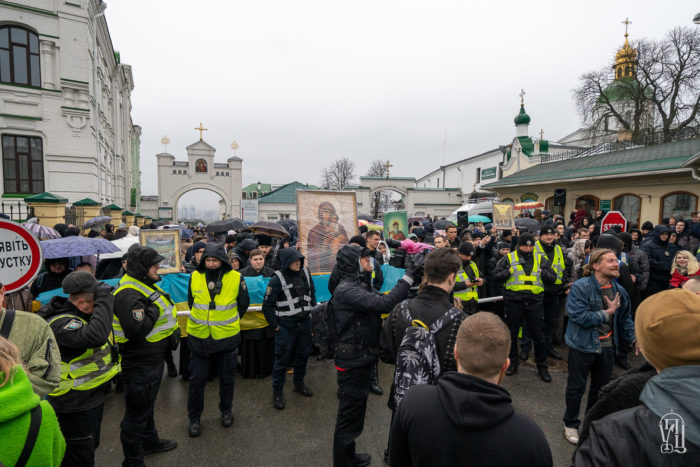
Of course not. They may not know or pretend not to know what real persecutions were, even during Soviet times when people were persecuted for their religious beliefs. No one persecutes people because they believe in God or are Orthodox.
The state attempts, albeit not always successfully, to treat everyone equally under Ukrainian law. This may feel like persecution to some because many within the Ukrainian Orthodox Church previously felt above the law, enjoying a sense of being irreproachable.
Metropolitan Pavlo acts as if he’s irreproachable, and the state now tries to hold him and others accountable under the law. Although the Ukrainian legal system isn’t perfect, the basic principles for treating the Ukrainian Orthodox community should be legal.
The first principle is the presumption of innocence. People should not have to prove their innocence; they should be considered innocent by default. Only legal procedures and courts should be able to prove someone guilty. The second principle is that individuals, regardless of their religious beliefs or affiliations, are primarily Ukrainian citizens. They should be treated as Ukrainian citizens, regardless of their beliefs or affiliations. These principles should be observed before any policy is developed regarding Ukrainian churches.
In May 2022, the Ukrainian Orthodox Church of the Moscow Patriarchate held a council where they proclaimed their independence from the Russian Orthodox Church and condemned the war against Ukraine. At the same time, a commission found that the Ukrainian Orthodox Church is still a part of the Russian Orthodox Church. Can you talk about what the canonical status of the UOC MP is and why it’s not in a hurry to break ties with the Russian Orthodox Church?
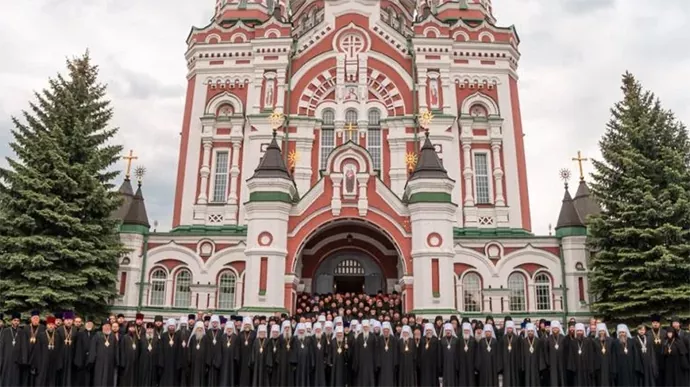
I believe there was a sincere attempt by the leadership of the UOC MP to distance itself from Moscow then. However, it was incomplete, and they were inconsistent in what they tried. They eradicated all the references to the Moscow Patriarchate statutes in their bylaws, and at the same time, they introduced new ones. They effectively eliminated all the explicit references and introduced some implicit references to their bylaws, and in this way, they effectively created a situation where they can claim for Ukrainian society that they are not anymore a part of the Moscow Patriarchate, and in some cases, when it fits them, they could claim that they are still somehow a part of it. So, the UOC MP is effectively a structure that entertains a very wide array of interpretations of what it is, from being autocephalous and independent, to being just dioceses or parishes of the Moscow Patriarchate in Ukraine. This broadness of interpretations, they hoped, would help them to survive and navigate through the contempt that they have in Ukrainian society and from the Ukrainian state. But it didn’t work, it seems. It helped them to continue somehow until recently, but now, especially, I think what triggered the state’s resolve to deal with the Ukrainian church was exactly the active participation of its hierarchs in the procedures of the annexation of Ukrainian territories by the Kremlin.
So that was the trigger that caused the Ukrainian state to change its policy of tolerating the UOC MP to hostility, with the ensuing raids at UOC MP monasteries in the fall of 2022?
That really was the personal trigger for [Ukrainian President Zelenskyy], I believe. I think he received some promises from UOC MP primate Metropolitan Onufriy that they would deal somehow with this situation, but Onufriy did not deliver on his promises, and this became the real reason why this approach from the Ukrainian state happened, and this happened already after May 2022. So, the expertise which was made by following the decision of the Ukrainian government that established that this church really has ties, still has ties with the Moscow Patriarchate, I believe the conclusion of the expertise is correct, and it is a basis now effectively for new actions, for new policies by the Ukrainian state regarding this church.
Moscow-backed Ukrainian Orthodox Church still linked to Russia despite claims – expert committee
Why can’t the Ukrainian Orthodox Church of the Moscow Patriarchate just break ties with Russia?
You see, this church has developed a deep dependence on one personality, its primate Metropolitan Onufriy. He is a very charismatic figure, and an unpredictable one, even for himself. So, it depends, I think, completely on him. This complete unaccountability of Onufriy to the rest of the Church when he does whatever he wants, and everyone follows, is one of the main reasons for the crisis. The complete dependence of the UOC MP on one charismatic, unpredictable personality has led to a situation of complete disaster for this Church.
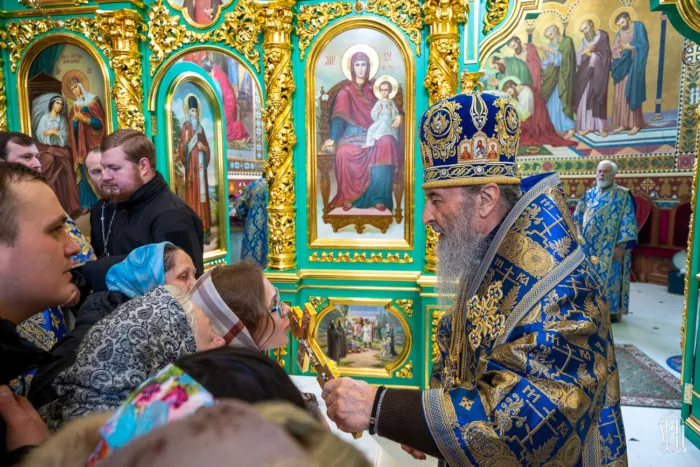
What would have been an ideal behavior scenario for these priests who stayed in the occupied territories? How should they have behaved to be acceptable to Ukrainian society? Maybe you have some examples?
You know, they already behave in different ways. Some of them collaborate, some clap their palms and sing Hallelujah to the invaders, receiving them as saviors. Some are neutral, trying to stay away from politics, as they say, and to keep to their business. And some resist in the ways they can. There are even bishops who resist. For example, as far as I know, Metropolitan Panteleimon of Luhansk participated in the Moscow ceremony of annexation and is a collaborator. He has been sanctioned by the Ukrainian state. However, he resisted, at least as far as we know, any attempt to include himself in the hierarchy of the Russian Orthodox Church. He tried to maintain the canonical relationship with the Metropolitan of Luhansk. So, in a sense, one could call it some form of resistance. Not particularly helpful for Ukraine as a state, but at least it’s not complete collaboration, I would say. And I think different degrees of resistance can be observed and will be observed when more details are revealed in the future among other clergies of the Ukrainian church.
I know that there are cases when priests of the Ukrainian Orthodox Church on the occupied territories were forced by the occupants to join the Moscow Patriarchy, per se, and they refused to do so. They were threatened with a dilemma: either join us or go to prison. And they still preserve their affiliation with the Ukrainian Orthodox Church, even though it is the Church of the Moscow Patriarchy. So it’s very complicated on the ground, and we cannot say that everyone on the occupied territory is a collaborator. It would be unfair and probably very unjust to some of them.
What about the ideology of the Russian world — the infamous heresy of Patriarch Kirill and the Russian Orthodox Church. How widespread is it within the Ukrainian Orthodox Church of the Moscow Patriarchy? Do they believe in the Russian world?
They certainly believed. I remember, for example, a public sermon by Metropolitan Antonih Pakanych, who is the chancellor of the church, in the Refectory Church in Lavra, soon after 2014, when he came to preach and tried to be apologetic about the ideology of the Russian world publicly. I don’t believe that people nowadays would utter this ideology publicly, at least not any bishop or priest of the UOC MP in Ukraine now. I know that many have publicly detested, rebuked, and even hated it because they believe it is the reason for their troubles, the war, and they suffer from the war as part of Ukrainian society, bearing all the burdens.
I think there are still pockets within the Ukrainian church, primarily in the monasteries, where this ideology is hidden and upheld in different ways. But those are pockets. It’s not really mainstream within the church, while it is mainstream in the Russian church, that’s for sure. The majority support it there. Of course, there is a debate whether the Russian world is like a consistent ideology, similar to Nazi or fascist ideology. It’s a debatable question. Certainly, it features some very important elements of classical ideologies, at least in the capacity to drive people to a common cause, like supporting this war.
My summary, in answering your question, would be that the Russian world ideology, whatever it is and however it is articulated, is the mainstream in the Russian church in Russia, but it’s certainly a very marginal phenomenon in the UOC MP, at least on the free territories.
These pockets in the monasteries would have substantiated the SBU raids on the monasteries, not?
I think there were some good reasons to make those raids. First of all, legally speaking, the SBU had all the right to do that. It’s legal, I think, to do it as a preventive measure, and I think it’s not against Ukrainian law. It may sound discriminatory, but it was really important in some cases to do that. In the end, the SBU showed some books and booklets which are not illegal to possess. Having those books [with Russian world ideology] is not necessarily an indication that people who have them comply with it. They can be kept for research reasons, and it’s not illegal to have them. So the evidence of showing some books was not sufficient in cases when monasteries were accused of collaborating with the enemy.
The passports and citizenships the Church hierarchs and priests had were more serious. There were cases when some of them had Russian citizenship together with Ukraine, which is illegal according to Ukrainian law. Now it would be important to present the accusations to the Ukrainian court, provide evidence, proceed with prosecution, and have the final decision of the Ukrainian court. Because only after the final decision of the Ukrainian court can we say that this person or institution is guilty. Otherwise, everyone is innocent based on their presumption of innocence.
In 2019, we saw the emergence of the Orthodox Church of Ukraine, an independent church that was bestowed a Tomos of Autocephaly by Ecumenical Patriarch Bartholomew, but the schism in Ukrainian Orthodoxy did not disappear since that time. What can we say about the interaction of the Orthodox Church of Ukraine and the Moscow-allied Ukrainian Orthodox Church from that time? Do they have any desire to get closer?
Well, that’s an excellent question, and thank you for that. First, I believe this schism does not exist in Ukraine anymore; it has been eliminated because everyone is now participating in church life recognized by global Orthodoxy equally. There are no more “Orthodox of the second sort” in Ukraine, as it used to be the case. However, the two structures, the autocephalous church and the Moscow Patriarchate, are still at odds with one another, and they don’t seem to want to reconcile. My impression is that this goes both ways, applying to both structures. Unfortunately, both churches act in competition instead of collaboration and dialogue. They claim they want dialogue but don’t seem to mean it, judging from what they do. The events around the law happen in the world of competition, sometimes even in the mode of opportunism.
For example, in the time of Yanukovych, when the Church used its political leverage in order to claim some extra territory for itself. I believe that the Orthodox Church of Ukraine is having such a moment now. Unfortunately, they jumped on this opportunity, and this opportunism, I think, is damaging for any future rapprochement between the two churches.
I think Ukraine nowadays really needs reconciliation among the churches. The strife between the churches drives confusion within Ukrainian society, which is why it needs to be consolidated.
And such steps as the episodes in Lavra, which are likely to continue, don’t help the reconciliation of Ukrainian society.
I believe that in the scenario of step-by-step state policies to deal with the church issue in Ukraine, the step called “Lavra” should have been somewhere at the end of the scenario, not at the beginning. It is something that one should have concluded with eventually, after a long journey of dealing with this issue, not at the start. And this step seems to be, for me at least, a misstep.
Related:
- Passions in the Lavra: why the Ukrainian state broke its patience with the Moscow-aligned Orthodox Church
- Moscow-backed Ukrainian Orthodox Church still linked to Russia despite claims – expert committee
- SBU raids Moscow Patriarchate-controlled Kyiv Pechersk Lavra monastery complex in Ukrainian capital (updated)
- Russian World: the heresy driving Putin’s war

